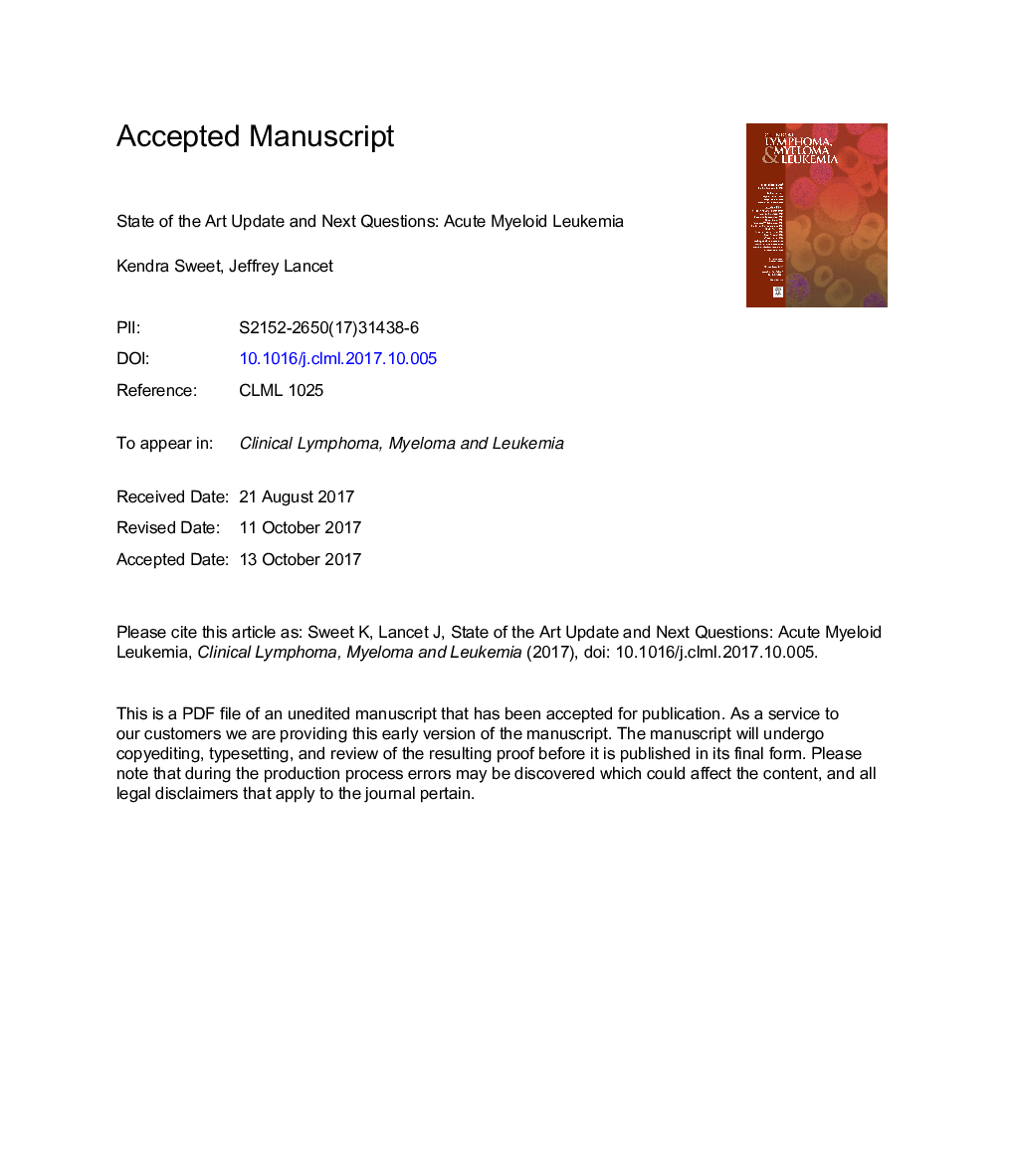| Article ID | Journal | Published Year | Pages | File Type |
|---|---|---|---|---|
| 8615964 | Clinical Lymphoma Myeloma and Leukemia | 2017 | 16 Pages |
Abstract
As our general understanding regarding the complex nature of acute myeloid leukemia (AML) is expanding, so is our ability to translate this biological data into clinically relevant information. The use of whole genome and whole exome sequencing has begun to shed light on the importance of a variety of somatic mutations that are frequently identified in AML. In turn, this has allowed the field to incorporate mutational data into prognostic classifications which can guide treatment decisions. Furthermore, minimal residual disease (MRD) monitoring in AML is more commonplace as the prognostic relevance of MRD at various time points during treat is becoming clear. Many novel treatments have recently been approved, or are expected to gain approval in the near future, and this is opening the door to a more personalized approach to the management of AML.
Related Topics
Health Sciences
Medicine and Dentistry
Anesthesiology and Pain Medicine
Authors
Kendra Sweet, Jeffrey Lancet,
